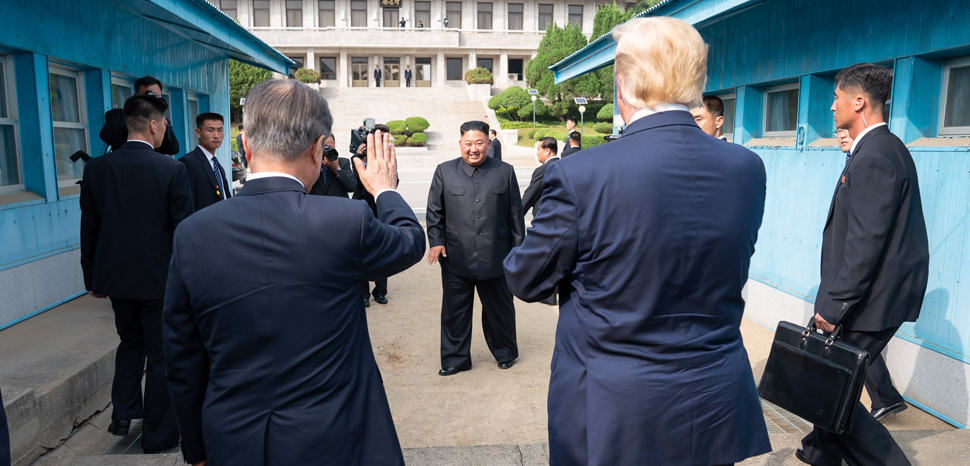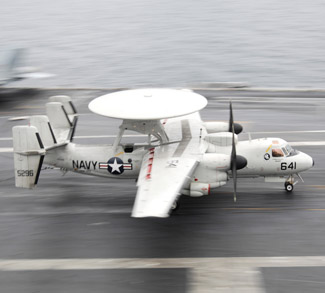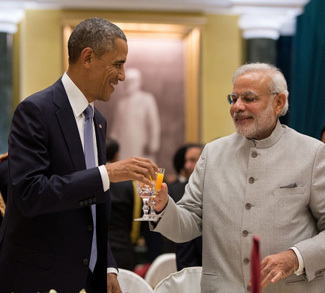Does the appearance of change in North Korea mean anything?
Kim Jong-Un told the delegates of the Workers Party in January that the economic emphasis would shift from the military, which consumes half of the national budget, to the civilian sector. He also announced that the number of troops would be reduced and the terms of service would be cut from thirteen years to eight for men, and from eight to five for women. Large numbers of men have been discharged and sent to work in coal mines or on commune farms. With little hope for anything better, some are joining roaming bands of bandits.
The shrunken ranks means that the military can release to the civilian population stores of rice and corn meal. With an arsenal of nuclear weapons, Kim Jong-Un has little concern that South Korea or the United States will use a weakened military as an opportunity for an invasion, as his father had feared during the famine of 1994.
Prior to the January announcement that the ranks of the military would be thinned, Kim Jong-Un displayed new advanced missiles in November. On display was the transformation of the DPRK military into a technically advanced force that no longer relies on ranks of poorly trained and badly equipped malnourished troops. What also can be interpreted from the new high-tech military is a shift in strategy from a war of attrition to an emphasis on a first-strike of maximum destruction.
Economic stresses were confronted at a cabinet meeting in February. Kim Jong-Un admonished members for failing to devise a workable program to rejuvenate the economy. Kim Tu Il, the director of the Central Committee’s Department of Economic Affairs, was charged with the failure and dismissed after only one month in the position. Kim Jong-Un ordered a shift to a centrally directed economy that will consolidate power in his hands. At a time when he is under assault by famine, U.S. sanctions, and the COVID-19 virus, he has opted for tighter control. The surprise invasion by the virus appears to have thrown him into a panic that has transformed the Hermit Kingdom into the Isolated Kingdom, with sealed borders and severe shortages of everything.
Younger sister Kim Yo-Jong took the stage in April by threatening the South. While she was insulting and threatening, a private correspondence between the heads of the two Koreas was being conducted secretly. Following the tradition of hot-and-cold diplomacy, the Workers’ Party abandoned in June the policy of applying subversion to overthrowing South Korea.
Pyongyang surprised everyone on July 27 by reopening four telephone links between the North and the South. Cutting the links in June of 2020 was to punish the South for allowing propaganda bearing balloons to be launched over its territory. Regardless, critical communications link had been maintained. As usual, Kim Jong-Un’s shift was only a gesture with little substance.
As members of the Moon Administration celebrated the warming relations, the DPRK military added a chill to the diplomacy by implying that it is preparing to implement urban guerrilla warfare in the South.
Referring to the reopening of the telephone links, Unification Minister Lee In-young said in a Facebook post: “This is only the beginning. I will work harder for the Kaesong Industrial Complex, the reunion of separated families and others.” Kaesong is a North-South industrial complex that U.S. sanctions are blocking the Moon Administration from reopening.
Some in the Moon Jae-In administration who favor closer ties with the North will argue that desperation makes Kim Jong-Un more flexible. There, however, has never been a time when the plight of his population has ever affected Kim’s policies.
Moon Jae-In is the more desperate of the two, and is the more willing to shift his course. After years of being a civil rights lawyer, he imposed freedom of speech restrictions on South Koreans by punishing anyone sending balloons over the North.
Moon Jae-In’s political career ends in March 2022, and he has little to show for it. The new Biden Administration places little importance upon the Korean peninsula and is not likely by March 2022 to modify any of the sanctions. President Moon could take the drastic step of shipping tons of desperately needed rice or thousands of vaccine shots to the North for humanitarian purposes. If the U.S. retaliates, President Moon could claim the high moral ground and point out from Afghan images how unreliable the American ally is. Now standing at the end of an unimpressive career, President Moon has nothing more to lose.
The views expressed in this article are those of the authors alone and do not necessarily reflect those of Geopoliticalmonitor.com




